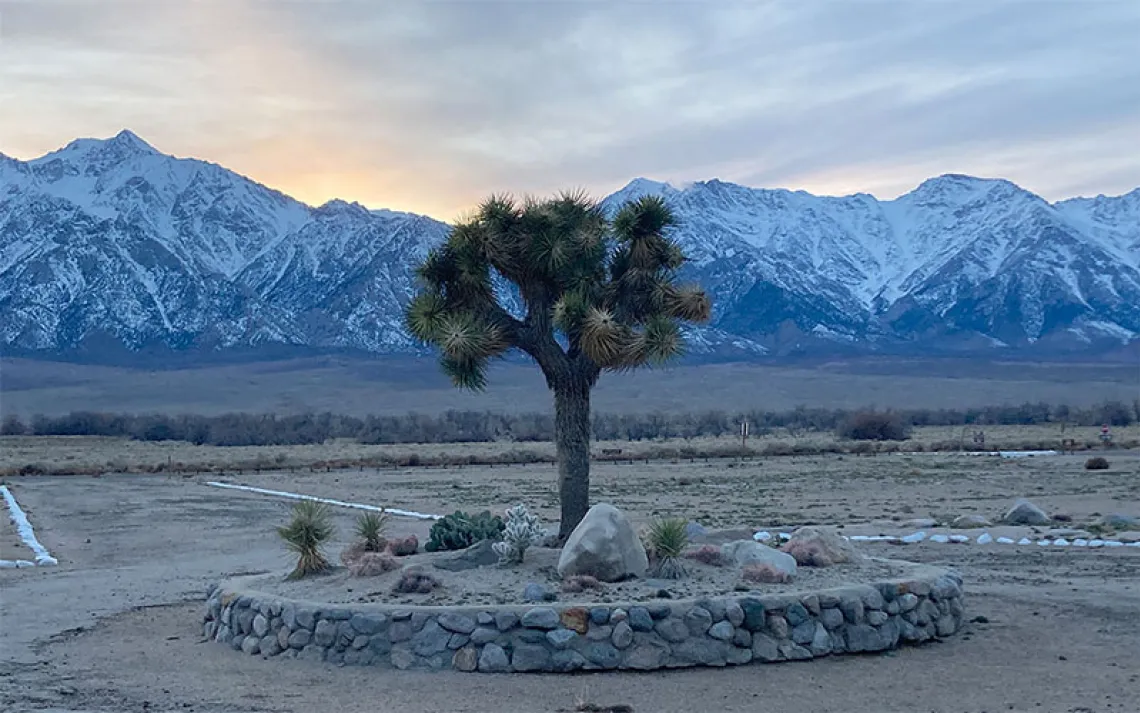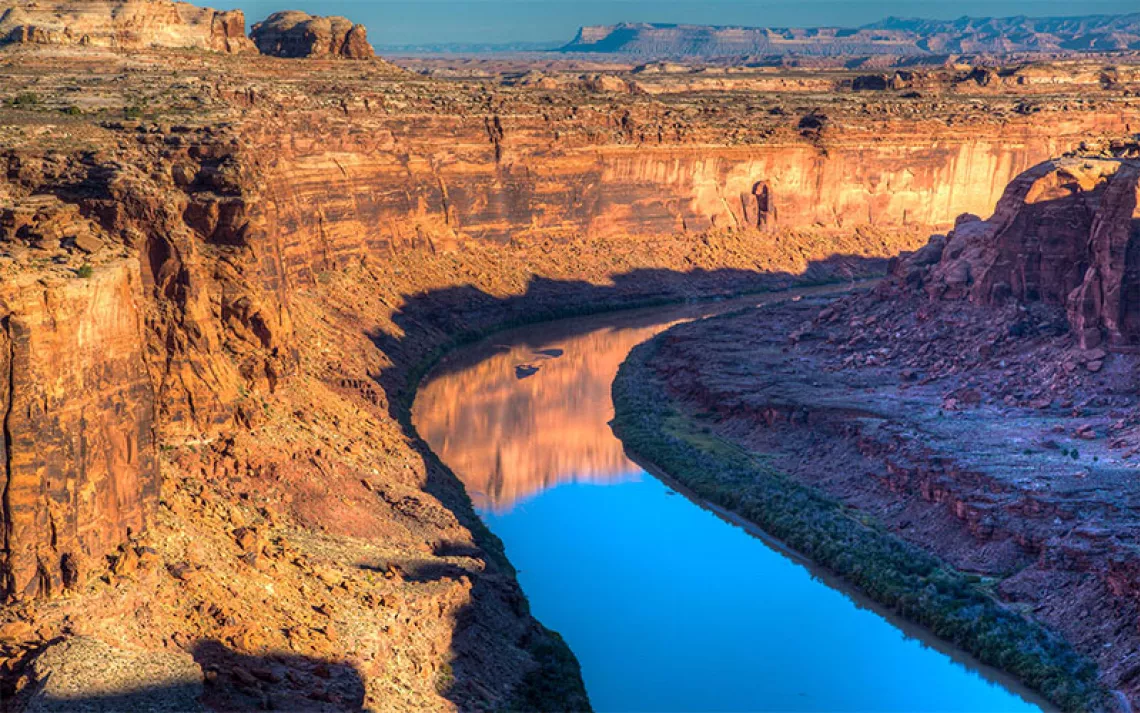Is This the Year the Muscogee Nation Gets a National Park?
Expelled from Georgia via the Trail of Tears, the Muscogee have an opportunity to return home to tell their story
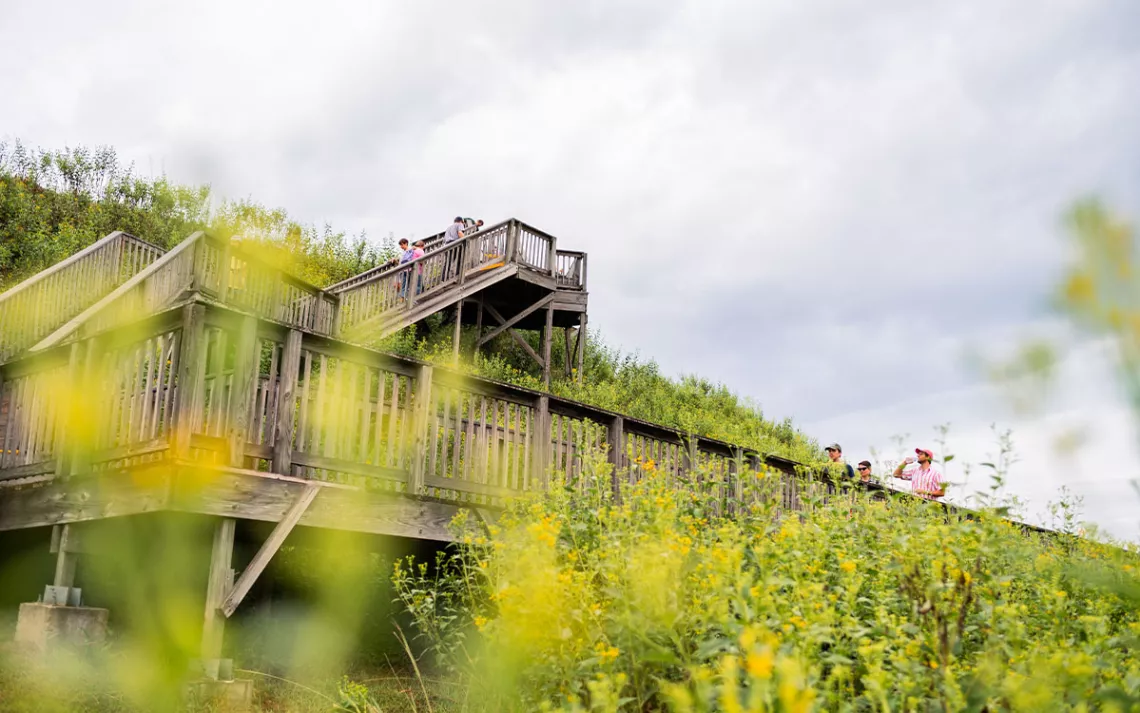
Steps to the Temple Mound in Ocmulgee Mounds National Historical Park. | Photo courtesy of Visit Macon
What could unite Georgia Democratic senators Jon Ossoff and Raphael Warnock with firebrand Republican representative Marjorie Taylor Greene? Possibly only the effort, recently introduced in both houses of Congress, to give Georgia its first national park, protecting the ancestral lands of the Muscogee Nation. The bills would elevate Ocmulgee Mounds National Historical Park in Macon. More significantly, they would not only preserve the sacred sites and mounds of the Muscogee (Creek) Nation—the fourth-largest federally recognized sovereign tribe in the US—but let the Muscogee people tell their ancestral story in their own voices.
Humans have inhabited Georgia for 17,000 years. Around 900 CE, known as the Mississippian Period, people built great mounds (map) for a variety of purposes. The Great Temple Mound served as the home for the chief, the Earth Lodge as a council chamber, while the Funeral Mound was a burial place for prominent figures. The descendants of those mound builders, the Muscogee, were ejected from Georgia in 1830 by the Indian Removal Act and sent via the Trail of Tears to Oklahoma.
Ocmulgee Mounds was originally imagined as a 2,000-acre national park, but in 1936 was designated instead as a national monument, which protected only 700 acres. Under Roosevelt’s New Deal, the Civilian Conservation Corps began excavating the site, drawing attention to its cultural significance and turning it into the largest archaeological dig in US history. In 2019, the Dingell Act redesignated it as a national historic park, expanding it to include the original intended land.
But there was a catch. “The [Muscogee] Nation has not necessarily been involved with the park, and the storytelling of the park, since the inception of it,” said Tracie Revis, a Muscogee Nation citizen and director of advocacy for the Ocmulgee National Park and Preserve Initiative. “And so all of the history that was being told, was being told through a white archaeological lens, not from a cultural perspective.”
Incorporating the Muscogee perspective has been a long time coming. In the 1870s, the Funeral Mound was cut through by a railroad, disturbing and unearthing graves. Other major missteps in the handling of sacred objects and remains over the decades eventually led to the Native American Graves Protection and Repatriation Act of 1990, requiring bringing in a representative from the appropriate tribal nation whenever artifacts or bodies were unearthed.
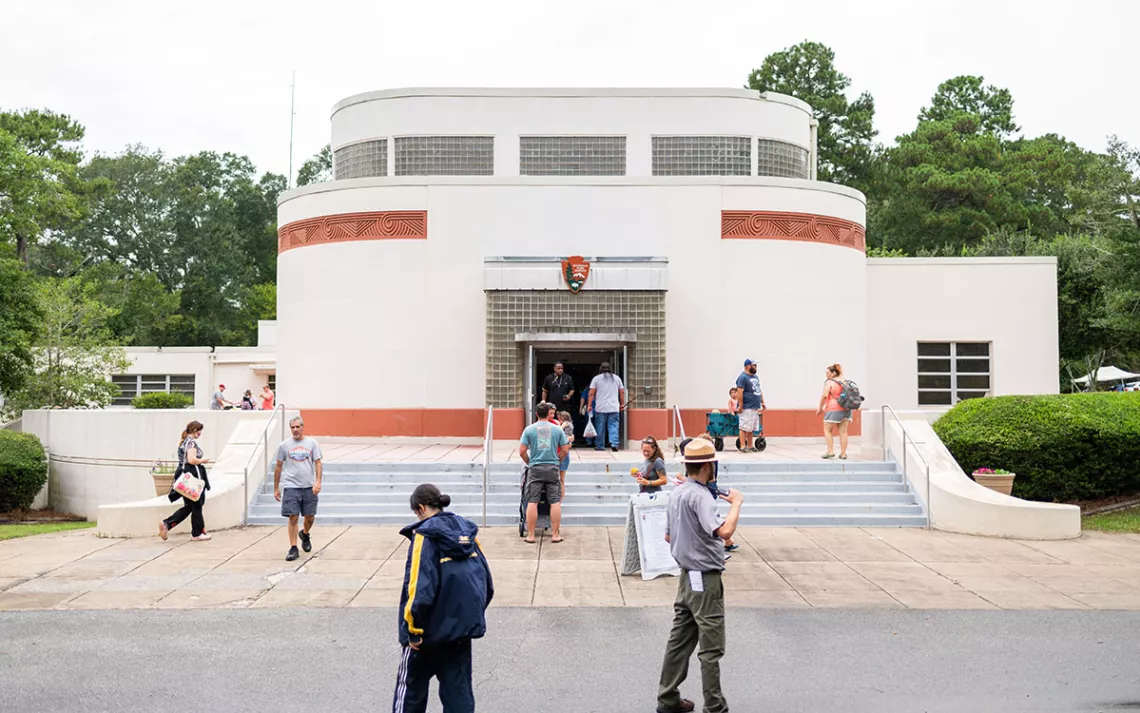
Ocmulgee Mounds National Historical Park Visitor Center. | Photo courtesy of Visit Macon
Tracie Revis often served as that representative, making regular cultural preservation trips back to her homeland in Georgia. She quickly discovered that Georgians really didn’t know anything about the Muscogee Nation and its real history—only folklore, misinformation, or information solely through an archaeological lens. She and Seth Clark, the executive director of the Ocmulgee park initiative (also Macon mayor pro tem and Macon-Bibb county commissioner) decided there needed to be permanent tribal representation in Macon.
“I’m born and raised here,” said Clark. “My whole family’s from middle Georgia multi-generationally.” Clark had followed the national park effort for a decade before taking on its leadership. He saw that information was being shared with the tribe but realized there needed to be a closer working relationship. He visited the Muscogee Nation in Oklahoma and heard the same words being used there that were also used for the places he grew up with in Georgia. That cemented for him the need for a stronger cultural representation.
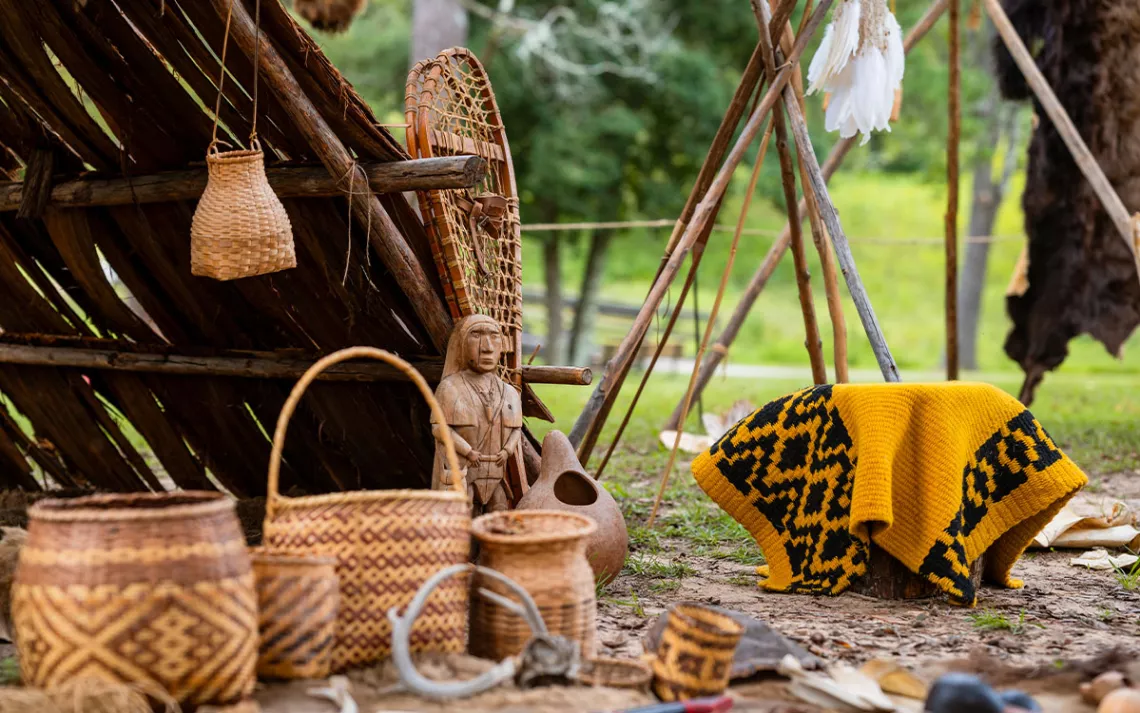
Indigenous celebration at Ocmulgee Mounds National Historical Park. | Photo courtesy of Visit Macon
Changes are already happening in Macon. They’ve added a land acknowledgment, and now the Muscogee flag flies above city hall. Soon street signs will appear in both English and Muscogee. The historic park, working with the tribe, now includes a cultural celebration of the Muscogee people. “Representation matters,” said Revis. “It matters for our people, when we come back.”
If the national park becomes reality and the Muscogee Nation serves as its comanager, it will have even more opportunities for representation. Revis would like, for example, to see corrections in the way the storytelling happens. Often, she said, all that people hear about Native people in the Southeast is that Europeans come “and then we get removed.” In fact, she said, before removal there were several hundred Muscogee “living alongside settlers and people coming into this land,” and that story has never been told.
Now national park status is closer than ever. Senator Warnock says he’s “proud to support the bipartisan efforts to establish Ocmulgee as Georgia’s first national park and preserve” and that he looks “forward to championing continued efforts in Congress to make this a reality for Macon.” Senator Ossoff recognized the Muscogee Nation and Macon mayor pro tem Clark “for their years of hard work, advocacy, and leadership that has made this moment possible.” Support for the park is bipartisan: The effort is cosponsored in the House by Representative Greene and 10 other members of Georgia’s congressional delegation.
“This is such an opportunity,” said Revis, “to not only look at the true history of the founding of the South and what was here, but understanding and appreciating the people who survived for thousands and thousands of years, and who maintained a culture and who still come back and maintain that today.”
 The Magazine of The Sierra Club
The Magazine of The Sierra Club
